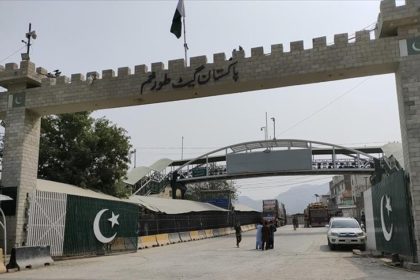RASC News Agency: Amidst global upheavals, the United Nations Population Fund (UNFPA) asserts the imperative to maintain our attention on Afghanistan. Here, women and girls endure the enduring repercussions of myriad crises, accentuated by recent earthquakes in Herat and the expulsion of thousands. Pio Smith, the UNFPA’s regional director for Asia and the Pacific, underscores his commitment to supporting displaced Afghanistani from Pakistan following a five-day mission to Afghanistan.
While the UNFPA aids over seven hundred health centers across Afghanistan, catering to around 700,000 individuals monthly, this commendable effort, though undeniably saving numerous lives, falls short of ensuring that every Afghanistani woman and girl accesses essential reproductive health services. This includes vital social and psychological support necessary for coping with and reconstructing their lives.
Over the past two months, more than 340,000 forcibly repatriated individuals from Pakistan have entered Afghanistan via the Torkham and Spin Boldak borders in the east and southeast. Among these displaced are hundreds of pregnant women and girls urgently requiring life-saving health services. In Nangarhar province’s Torkham Reception Center, the UNFPA, in collaboration with partners, has instituted a mobile health clinic. Staffed with doctors, midwives, and social counselors, it operates 24/7 to ensure women and girls receive immediate care.
In the Zinda Jan district of western Afghanistan, Maryam awaits her turn to consult with a UNFPA-supported counselor. She grapples with profound grief over losing her 20-year-old daughter during the 6.3 magnitude earthquake on October 7, one of the severely affected in Herat province. Within 72 hours, the UNFPA erected medical tents to deliver emergency maternal health services and psychosocial support. Today, these tents have evolved into a fully equipped emergency unit, providing natural and cesarean childbirth services, coupled with counseling and mental health support for women and girls. This assistance aids them in navigating the profound loss and reconstructing their lives.
Reflecting on his interaction with the women and girls in Zinda Jan, Mr. Smith states, “Many survivors, including pregnant women, bear physical injuries from the earthquake. Beyond these injuries, they grapple with profound psychological wounds. Unfortunately, many experience feelings of despair and contemplate suicide. These women and girls suffer due to losing their families, homes, and livelihoods. Urgently, they need social and psychological support to cope and rebuild.”






